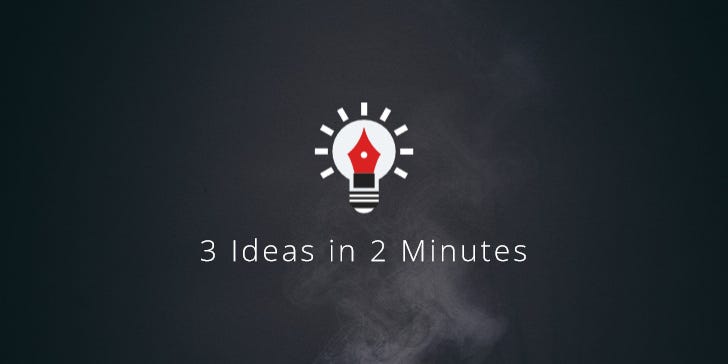#135: The Origin of Stupidity, Purposeful Stupidity & Tragic Wisdom
3 Ideas in 2 Minutes on Stupidity
I. The Origin of Stupidity
What causes people to do stupid things? Author Robert Greene has an answer:
[S]tupidity does not originate from ignorance, which is the wrong idea. When you are ignorant, when you don’t know anything about something, you’re generally a little bit humble. You realise: “I don’t know anything about physics. So I’m not going to try and do something with physics.” […]
Stupidity originates from half-knowledge, from people who are half-educated, who think they know enough, who’ve read a few books and educated themselves in a subject. But they’ve not delved into it deeply enough.
So what happens when you look at something half-way like that, is you’re generally falling under confirmation bias. You’re looking for the kind of information you want to find.
Greene sees overconfidence in one’s half-knowledge and misplaced conviction as red flags:
When you look at yourself and you feel so certain about your action or project, that’s the moment when a little alarm must go off in your head and go: ‘Am I fooling myself? Am I about to do something very stupid?’
On a related note, check out my essay on the infamous Dunning-Kruger Effect.
II. Purposeful Stupidity
The concept of Purposeful Stupidity goes back to a 1944 document entitled Simple Sabotage Field Manual. It was published by the Office of Strategic Services (OSS), the U.S. intelligence service during World War II.
The manual describes in detail how citizens of occupied countries can engage in sabotage to undermine the enemy’s society from within. By acting, well, stupid on purpose. Here are some things the OSS suggested you can do to wear an organisation down:
Insist on doing everything through “channels.” Never permit short-cuts to be taken in order to expedite decisions.
Make “speeches.” Talk as frequently as possible and at great length. Illustrate your “points” by long anecdotes and accounts of personal experiences.
When possible, refer all matters to committees, for “further study and consideration.” Attempt to make the committee as large as possible — never less than five.
Bring up irrelevant issues as frequently as possible.
Haggle over precise wordings of communications, minutes, resolutions.
Refer back to matters decided upon at the last meeting and attempt to re-open the question of the advisability of that decision.
Advocate “caution.” Be “reasonable” and urge your fellow-conferees to be “reasonable” and avoid haste which might result in embarrassments or difficulties later on.
It’s often noted that the instructions are indistinguishable from a normal day in a modern office.
III. Tragic Wisdom
The whole problem with the world is that fools and fanatics are always so certain of themselves, and wiser people so full of doubts.
—Bertrand Russell
🐘
Have a great week,
Chris
themindcollection.com


